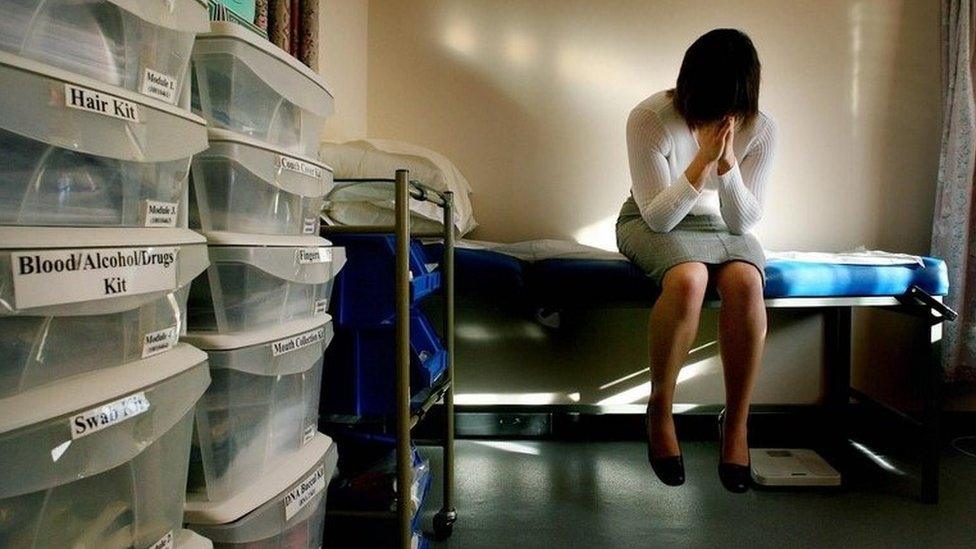Rape victim policy change criticised
- Published

A new policy which could compel reluctant rape victims to give evidence has been criticised by a charity.
Prosecutors have been reviewing the way they deal with reluctant complainers in rape cases and have produced new guidance.
But Rape Crisis Scotland said issuing warrants for the arrest of victims who do not wish to testify in court would reduce confidence in the system.
The Crown Office said it consulted with stakeholders before making the change.
The new policy has already come into force.
The Crown Office said it would take into account the attitude of the complainer and the individual circumstances in serious sexual offence cases.
It has insisted it will try to re-engage and support victims but has admitted that in some cases it will compel them to give evidence even if they are reluctant.

Sandie Barton from Rape Crisis Scotland said the change in policy was "disappointing and concerning"
Rape Crisis Scotland has raised concerns that in some cases warrants could be issued to arrest victims to force them to appear in court.
It has published an open letter, external warning that this new policy will reduce confidence in the system which it says is already "notoriously low".
The charity said the change of policy would be a "backwards" step which could have "could have significant, lasting negative implications".
Sandie Barton from Rape Crisis told BBC Scotland: "We are really disappointed and really concerned about this change. What it will mean is the survivors/complainers will be forced to give evidence against their will.
"One of the key reassurances that we are currently able to give people is that if they don't feel able to proceed, that their wishes will be respected, but this will be gone.
"One of the key challenges is the lack on control that they have over proceedings and this will make that worse."
'Hold perpetrators to account'
The Crown Office said it had to consider the risk and safety implications for other members of the public. It said the new guidance represented a rebalancing of policy.
A spokesman said the change was "the subject of consultation with stakeholder organisations before it was finalised".
He added: "Public prosecutors have a duty to act in the public interest and, at all times, take decisions with that in mind. These decisions involve a careful assessment of all the relevant circumstances applicable to the particular case.
"Where they can do so, prosecutors have a responsibility to hold the perpetrators of serious sexual offences to account, and to seek to protect the public from dangerous offenders.
"In sexual offence cases, the attitude of the complainer will always be a very significant factor in making decisions on prosecution and may often justify not proceeding further with the case.
"However, circumstances vary greatly and it would not be appropriate to lay down a rule that proceedings can never be taken if the complainer is reluctant.
"The new guidance will make sure that if the complainer is reluctant, the reasons for this will be fully explored and all reasonable steps taken to re-engage the complainer before a decision is taken about the case."
- Published1 March 2018

- Published27 February 2018

- Published19 February 2018

- Published20 December 2017
